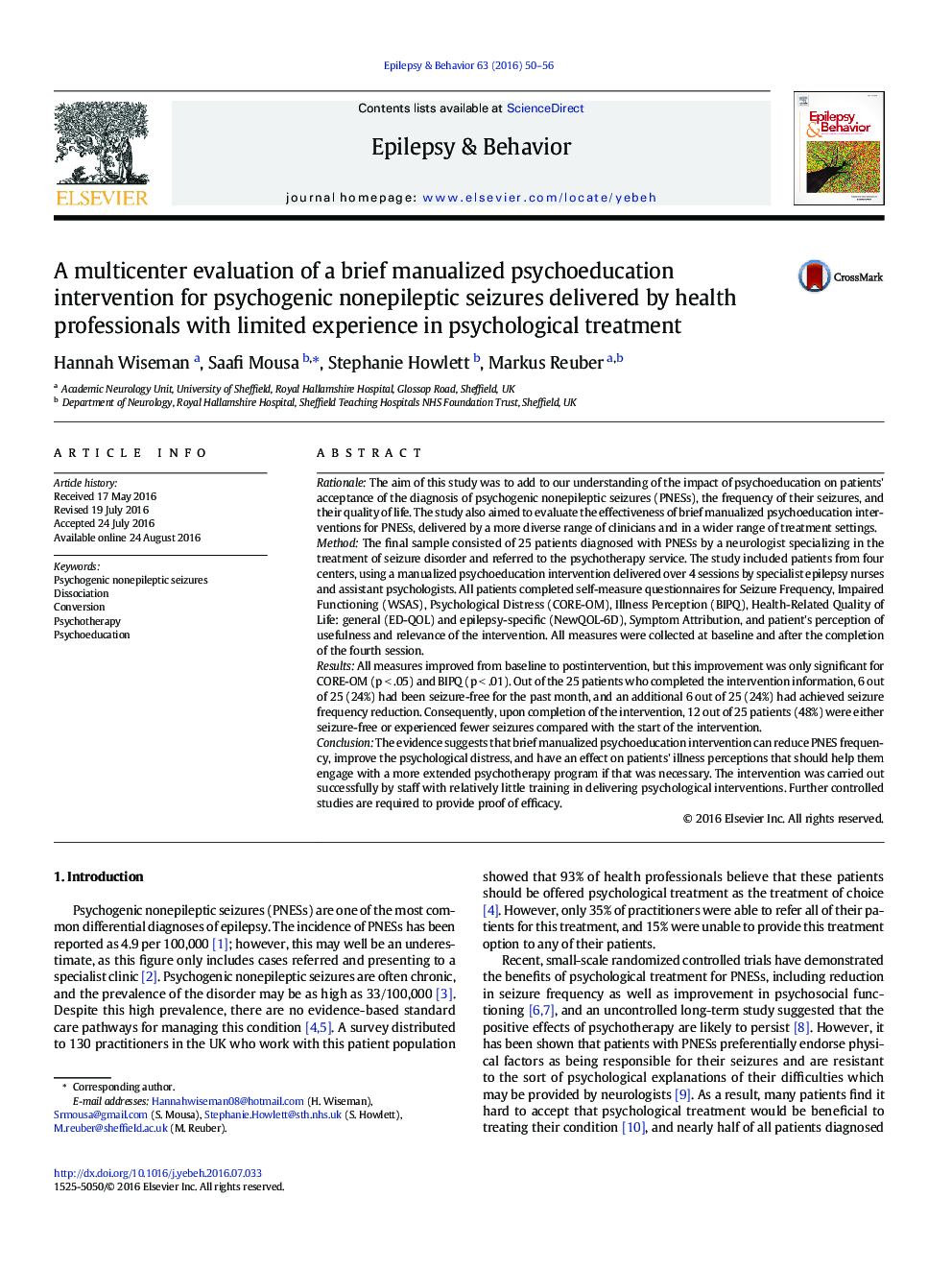| کد مقاله | کد نشریه | سال انتشار | مقاله انگلیسی | نسخه تمام متن |
|---|---|---|---|---|
| 6009717 | 1579828 | 2016 | 7 صفحه PDF | دانلود رایگان |
- A stepped care intervention for psychogenic nonepileptic seizures (PNES) is further evaluated.
- Psychoeducation interventions can be effectively delivered by staff with relatively little psychological training.
- Psychoeducation can improve seizure frequency, psychological wellbeing and illness perceptions in individuals with PNES.
RationaleThe aim of this study was to add to our understanding of the impact of psychoeducation on patients' acceptance of the diagnosis of psychogenic nonepileptic seizures (PNESs), the frequency of their seizures, and their quality of life. The study also aimed to evaluate the effectiveness of brief manualized psychoeducation interventions for PNESs, delivered by a more diverse range of clinicians and in a wider range of treatment settings.MethodThe final sample consisted of 25 patients diagnosed with PNESs by a neurologist specializing in the treatment of seizure disorder and referred to the psychotherapy service. The study included patients from four centers, using a manualized psychoeducation intervention delivered over 4 sessions by specialist epilepsy nurses and assistant psychologists. All patients completed self-measure questionnaires for Seizure Frequency, Impaired Functioning (WSAS), Psychological Distress (CORE-OM), Illness Perception (BIPQ), Health-Related Quality of Life: general (ED-QOL) and epilepsy-specific (NewQOL-6D), Symptom Attribution, and patient's perception of usefulness and relevance of the intervention. All measures were collected at baseline and after the completion of the fourth session.ResultsAll measures improved from baseline to postintervention, but this improvement was only significant for CORE-OM (p < .05) and BIPQ (p < .01). Out of the 25 patients who completed the intervention information, 6 out of 25 (24%) had been seizure-free for the past month, and an additional 6 out of 25 (24%) had achieved seizure frequency reduction. Consequently, upon completion of the intervention, 12 out of 25 patients (48%) were either seizure-free or experienced fewer seizures compared with the start of the intervention.ConclusionThe evidence suggests that brief manualized psychoeducation intervention can reduce PNES frequency, improve the psychological distress, and have an effect on patients' illness perceptions that should help them engage with a more extended psychotherapy program if that was necessary. The intervention was carried out successfully by staff with relatively little training in delivering psychological interventions. Further controlled studies are required to provide proof of efficacy.
Journal: Epilepsy & Behavior - Volume 63, October 2016, Pages 50-56
